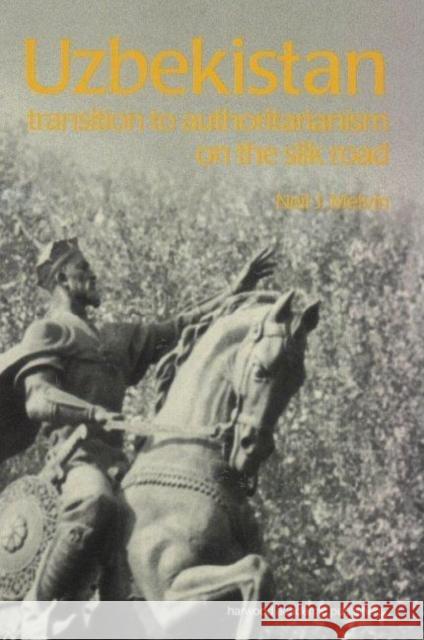Uzbekistan: Transition to Authoritarianism » książka
Uzbekistan: Transition to Authoritarianism
ISBN-13: 9789058230294 / Angielski / Twarda / 2000 / 192 str.
Uzbekistan: Transition to Authoritarianism
ISBN-13: 9789058230294 / Angielski / Twarda / 2000 / 192 str.
(netto: 718,58 VAT: 5%)
Najniższa cena z 30 dni: 654,86
ok. 16-18 dni roboczych.
Darmowa dostawa!
Uzbekistan more than any other country in the area is likely to play a critical role in shaping Central Asia's future. Situated at the heart of the region and sharing borders with all the other Central Asian states, Uzbekistan is the most powerful and populous of the new states of Central Asia.
In this volume, the historical origins of Uzbekistan are explored and the range of political, economic and social challenges faced by the country since independence is charted. Particular attention is given to the emergence of highly authoritarian politics in the country and the implications of this regime for the prospects of economic development, ethnic peace, and the growth of political Islam.
The emergence of Tashkent as a force in the international system and the importance of Uzbekistan to other countries in the area, to regional powers and to the leading western countries and international organizations is also examined.
Uzbekistan more than any other country in the area is likely to play a critical role in shaping Central Asia's future. Situated at the heart of the region and sharing borders with all the other Central Asian states, Uzbekistan is the most powerful and populous of the new states of Central Asia.
In this volume, the historical origins of Uzbekistan are explored and the range of political, economic and social challenges faced by the country since independence is charted. Particular attention is given to the emergence of highly authoritarian politics in the country and the implications of this regime for the prospects of economic development, ethnic peace, and the growth of political Islam.
The emergence of Tashkent as a force in the international system and the importance of Uzbekistan to other countries in the area, to regional powers and to the leading western countries and international organizations is also examined.











